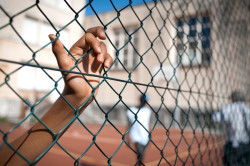
As a result of legislation that Arkansas Advocates and the Arkansas Opportunity to Learn Campaign pushed for in 2013 (Act 1329), the state of Arkansas has since reviewed school discipline practices in schools statewide. From year to year, the same disproportionate trends remain. Black students are more likely to be cited for infractions and punished more harshly than their white peers. In August 2015, the Office of Education Policy gave a report on school discipline in Arkansas. On February 11th, the Office of Education Policy OEP dug deeper into the school discipline data and presented it before the State Board of Education.
Five key findings stand out from OEP’s research:
- Nearly half of Arkansas’s schools use corporal punishment (or “spankings”) as punishment.
- Schools with higher percentages of black students seem to be the schools that levy harsher punishments.
- When it comes to subjective infractions (like insubordination and disorderly conduct), black children are not only cited more often but are also suspended, expelled, or sent to Alternative Learning Environments (ALE) more often than their peers.
- Students who are truant (or missing too many days of school) are being suspended in some schools (even though this is illegal to do) – and black students are suspended for this more often than their peers.
- Arkansas students who struggle academically are more likely to be given exclusionary punishments (meaning suspensions, expulsions, or sent to ALE).
Reliance on harsh, exclusionary, and racially disproportionate discipline practices fuel what is referred to as the “school to prison pipeline.” They especially impact children who need the most help in the classroom. It’s important that schools foster an atmosphere where everyone – students and staff – feels safe, supported, and valued.
In prior blog pieces, we talked about the need for restorative justice approaches to replace harsh discipline practices and what these practices look like. Because restorative justice practices focus on conflict resolution, problem solving, and social-emotional awareness, they can help everyone feel safe and valued in the school setting. As one method to improve school climate, the Arkansas Department of Education encourages school districts to use Positive Behavior Support Interventions. But, it is unclear what strategies are used in each district since discipline practices vary by school. According to the PBIS Resource Center, only 15 school districts have “PBIS Schools.” Resources are available for schools that want to implement PBIS strategies through the newly developed PBIS Center in Arkansas State University’s Center for Community Engagement. If we want to reduce disparities and enhance school environments, we need schools to implement restorative strategies and rely less on damaging discipline methods.
